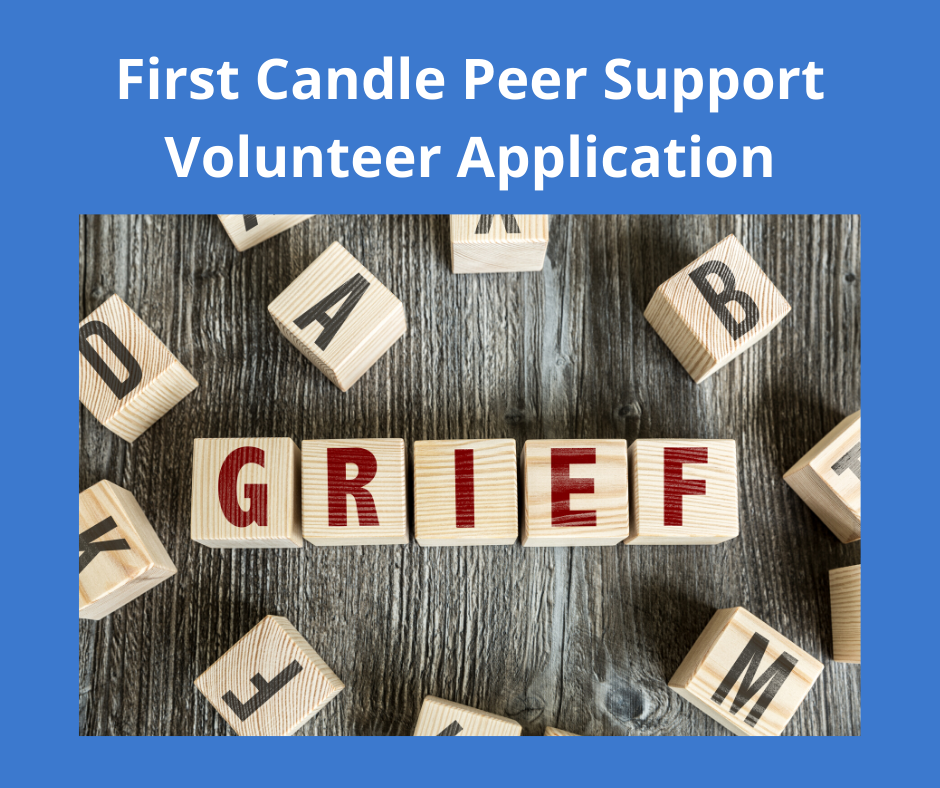First Candle Peer Support Program
Now more than ever, families need someone to turn to after the death of their baby from Sudden Unexpected Infant Death or Stillbirth. Talking to someone who has experienced the profound grief of losing a baby provides comfort and hope to newly bereaved parents.
If you are interested in volunteering with First Candle as a peer-support volunteer we’d love to hear from you. You do not need a formal background in grief support, you will be trained by our Director of Bereavement.
The criteria are as follows:
- You must be a parent, grandparent (or other relative), childcare provider or foster parent who has experienced the death of an infant. It must be a minimum of one year past the death of your infant (it is important that the Peer Contact has experienced specific “milestones,” such as the first birthday and first anniversary of death, prior to attempting to provide assistance to other families experiencing such milestones.)
- Participate in a Peer Contact training session and receive an acceptable evaluation from the Peer Contact Instructor.
- Follow ALL applicable peer contact procedures, including appropriate consultation with the Peer Contact Coordinator (or other supervisor) on family issues, timely completion of any forms or reports requested and attendance at any mandatory Peer Contact meetings or re-training seminars.
- The Peer Contact is responsible for contacting each grieving family to whom he or she is assigned within 17 hours of receiving the referral. The Peer Contact is responsible for offering and providing specific services to grieving family members. He or she is also responsible for not attempting to provide levels of service that he or she is not trained to provide.
- A Peer Contact who is trying to deal with a stressful personal life, in addition to the grief of a newly bereaved family, is not capable of creating an optimal situation for either themselves or the family. Even during periods of relatively positive stress (new baby, job promotion, moving to a new home, a wedding, etc.), it may be advisable to take a respite from peer contact duties.
- A Peer Contact must do more than hear the words of grieving family members; they must be able to listen well enough to discern the speaker’s attitudes and feelings as well.
- The Peer Contact must be able to care about other families’ problems without feeling they must solve them and without projecting their own problems upon the grieving family members.
- As a primary care giver to grieving families, the Peer Contact may receive calls at inconvenient times (dinner hour, early morning, middle of the night, when company is visiting, etc.) Although they are not expected to be constantly available, the Peer Contact needs to remain flexible about responding to important calls at inconvenient times.
- The relationship between the grieving family and the Peer Contact is founded on trust. The Peer Contact must be able to maintain the family’s confidentiality. They also need to make the family members feel secure in telling them sensitive information; which is accomplished, in part, by maintaining a non -judgmental attitude.
- While no one expects a Peer Contact to constantly reflect a happy attitude, their overall positive attitude and general satisfaction with their own life will provide a source of stability and a model of successful survival for the grieving family.
If you believe you would be a good peer-support volunteer, please click here to fill out an application.


